Ever since the formation of Video Volunteers (VV), we always wanted to create an organization that was run by our most important stakeholders – the Community Correspondents (CC). We aimed for a structure that was non-hierarchical and where every CC played a role in shaping and transforming VV into a community media movement in the country.
We knew that the lived experience of our Correspondents didn’t just make them the best journalists on issues of social justice, but also made them the best leaders of a social justice organization.
So Video Volunteers created the Council in July 2019 as a first step in formally involving Correspondents in the governance of the organization. The Council’s role includes providing suggestions in decision-making, bridging communication between Correspondents and the office, strengthening the network on the ground, and protecting and promoting VV’s mission.
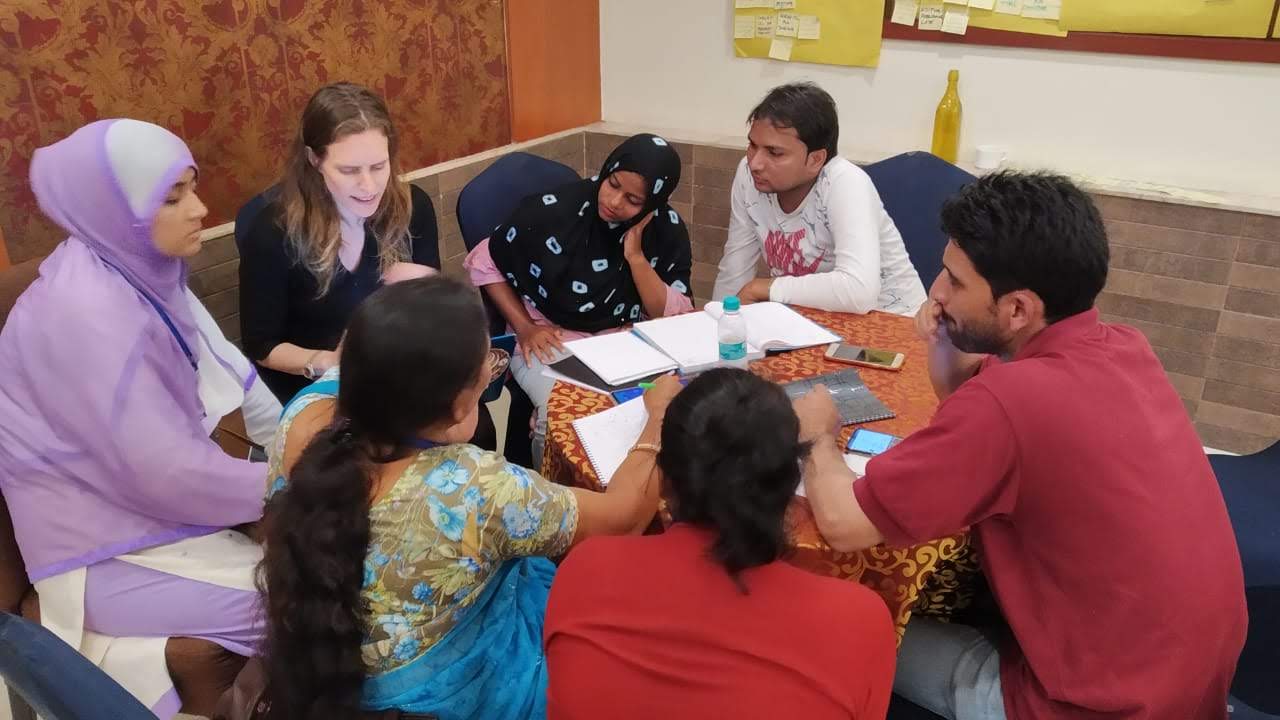
Video Volunteers council meeting at Patna, Bihar in 2019.
Thirty seven CCs and seven senior staff form the VV Council. Within the Council, there are 6 committees: Communication, Safety & Security, CC Welfare, Impact, and CC Activation, as well as a Core Council.
The CC Activation Committee, for instance, works towards re-activating lapsed Correspondents, who haven’t submitted a video in a long time. The data showed that they have greater success than the organization’s staff. The Welfare Committee ensures all the organization’s policies are in line with CC’s interests, and has recently proposed terms for insurance that meet CC needs better than the ones the organization had first devised. The Communications Committee acts as a link to facilitate clear communication among CCS and between CCs and the staff and trains Correspondents in grassroots distribution of their content. The Impact Committee helps CCs devise impact strategies for their videos, and the Safety & Security Committee mobilizes fast whenever a Correspondent faces threats.
Though the first members of the Council were chosen by the staff, based on the respect the members had in their network, their commitment as Correspondents, and their ability to think organizationally, the Council subsequently elected its own members.
The VV Council was started with a grant from the Resilient Roots project of CIVICUS that was testing the hypothesis that organizations are more resilient when they are more accountable to their primary constituents; the Covid19 pandemic proved this to be true.
Our CCs, who are mainly from rural areas, found it extremely difficult to report on issues, with movement restrictions in place, especially in the strict lockdown months of March until September. On the personal front, they were facing challenges of decreased incomes and access to food. At one point, 40 of VVs 179 correspondents complained of not having enough food on their plates.
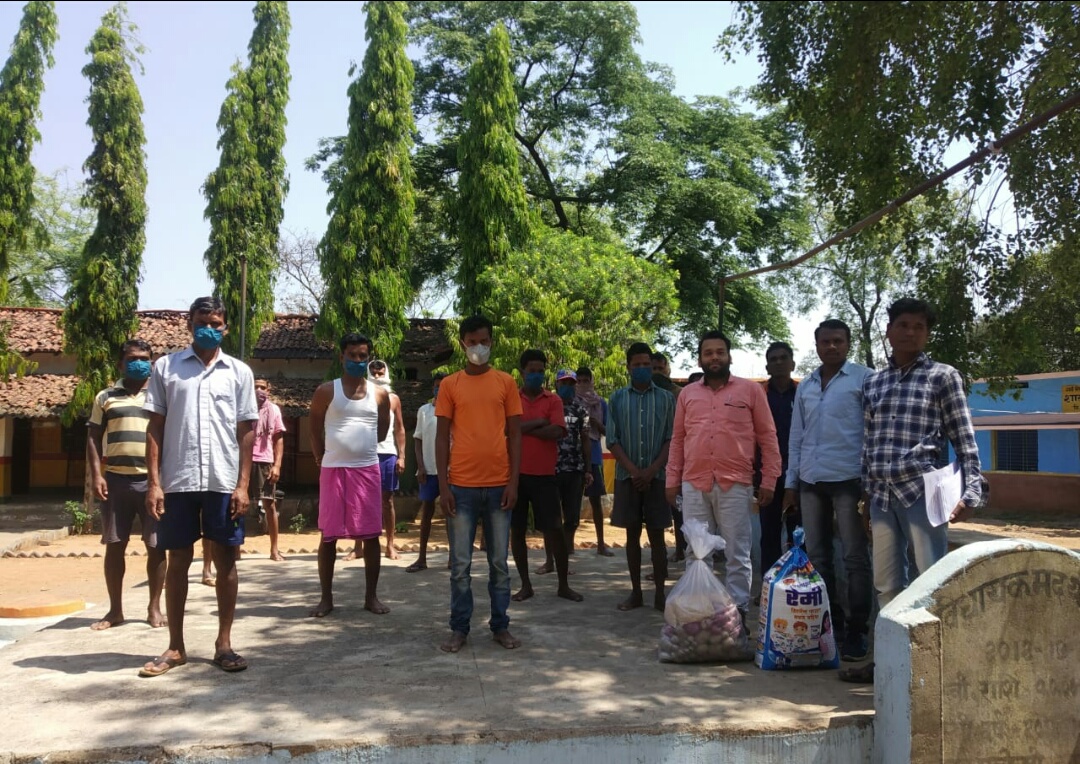
Daily wage labourers seen stranded during the lockdown (Mar - Sept) in India
Such a situation could have killed an organization, but our CCs doubled down their efforts. They did so by supporting one another and communities around them, while also braving the pandemic to highlight problems of people wherever they could. In all its sense, the CCs took charge of the organization and helped it not just sail through the tough times but thrive.
In the thirteen months since the Council was formed, VV has learnt that engaging Primary Constituents in decision-making does lead to better decisions.
We interviewed a group of Correspondents for their views on the Council. Below, they share what they have gained as individuals and as a group from taking charge. Broadly, their comments touch upon four overlapping areas -- solidarity, mutual learning, network behaviors, and accountability.
- Solidarity and mutual support: A network is much stronger when members demonstrate generosity and care for each other.
- Harihar Nagbansi from West Bengal, who is part of the Welfare/Kalyan and Communications committees as well as the council, says that personally he had always wished for benefits such as insurance and a provident fund for the CCs and that after creating the Council, the organization finally did this.
“We have been able to activate many CCs. 23 of our 23 CCs in the state of West Bengal are active now,” said Harihar. “The council helps understand the workings of the administration, improve communications skills, and imbibe a sense of responsibility.”
“There was an instance, when a team of CCs were stuck in Howrah around March-April [during the Covid lockdown]. They got in touch with me and I was able to help them return home in Odisha by communicating their situation to our office in Goa,” he narrates.
- Rajesh Gupta, Chhattisgarh, sees the council and committees as beneficial for solving each other’s problems.
“Whenever someone has a problem, it is shared in the WhatsAapp group. We then discuss it or make conference calls to follow up. If a problem requires legal help, we research, talk to the office and then decide how to solve it. This includes personal problems too”.
“ When Brinda ji (a CC) met with a road accident in December 2020, her son had posted about in our WhatsApp group and had requested for financial help for her medical expenses. I helped him connect with the founders. There was an appeal among CCs to send help as per their capacity, and many of them did,” he said. Many CC’s contributed to the fund for Brinda Azad, who passed away on 27 December from her injuries.
- For Rohini Pawar from Maharashtra being part of the council made her realize that the organization’s strength was indeed the CCs. As part of the Kalyan and core committee, she was instrumental in starting the insurance drive for CCs.
“We got 40 CCs insured last year and made a rule that from 2021 onwards, all CCS who are active in the network will get their insurance reimbursed. We have also helped people with filing income tax returns by reminding them of filing deadlines and creating awareness,” she said.
“ We are now starting an emergency fund -- Awaz Ho Buland-- in which CCs will be asked to deposit 500 rupee voluntarily. CCs will be able to borrow money from the funds on very low interest rates for emergencies, family problems, accidents, etc. It will help them from not falling into the trap of money lenders”.
- Network/nodal growth - Strong movements emerge when members use it as a platform to start new projects, conversations and collaborations. It becomes a network where each member makes it grow and there are multiple independent circles of activity, rather than one where all activity is driven from the center of the node.
- Maharashtra’s Chetan Salve, who is part of the Activation Committee, believes that if the CCs help each other in terms of training and handhold the ones who are struggling to actively contribute videos, it could be the start of a movement.
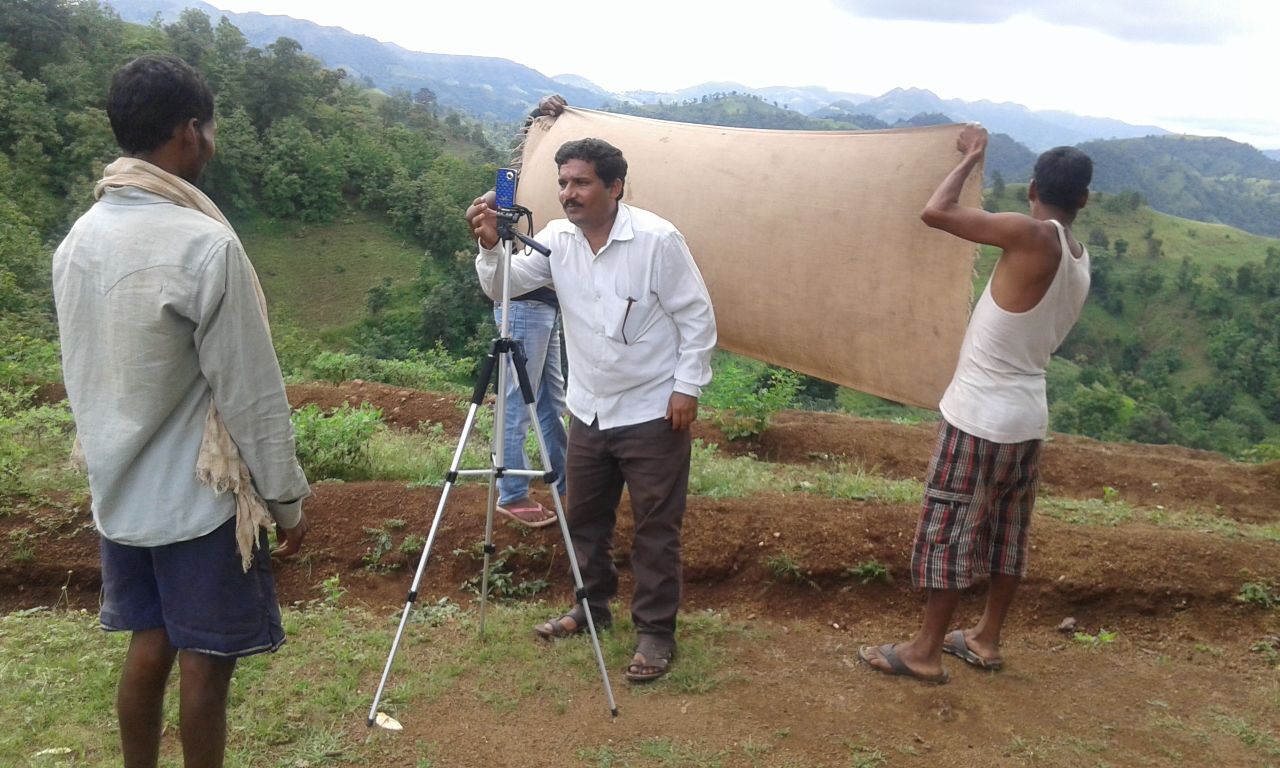
Chetan Salve working on a video report in Maharashtra
“As part of the Activation Committee, we give feedbacks from our own states to the Council. We discuss why CCs are not active, what is their problem. As much as making videos is my work, I treat even community support as my responsibility and work,” he said. “If all Council members become active and accountable, we can make it work like a movement and spread it across the country”.
- S M Zafar Equbal from Bihar is part of the Communication and Core Committees. He noticed that before the formation of the Council, some CCs were feeling very distant from the organization.
“Now communication is clear between CCs and the organization, mentors and among each other. We work as a team. We are able to solve problems easily. Some correspondents who were not active, we visited them in different villages, heard their problems related to editing, and taught them,” he said.
“Asha Devi in Jahanabad (Bihar) had forgotten editing. Myself and some members of the Communications Committeed visited her to help her do a ‘piece to camera’ and to edit her own video. Then we sent the video to her mentor. Her village is 45 kms away from my village. We have also supported each other financially, even if it is in the form of loans and donation. VV helps as an organization separately but even among us we support each other”.
- Learning Together: Movements should help people develop their critical thinking and problem-solving skills, and become leaders. In VV, these skills are required in the impact processes and in producing the videos, in which Correspondents articulate solutions to problems. Working in the Council helps CCs develop those skills.
- Shabnam Begum from Uttar Pradesh saw joining the Council and the Impact Committee as an opportunity to hone her own skills and help fellow CCs improve their skills.
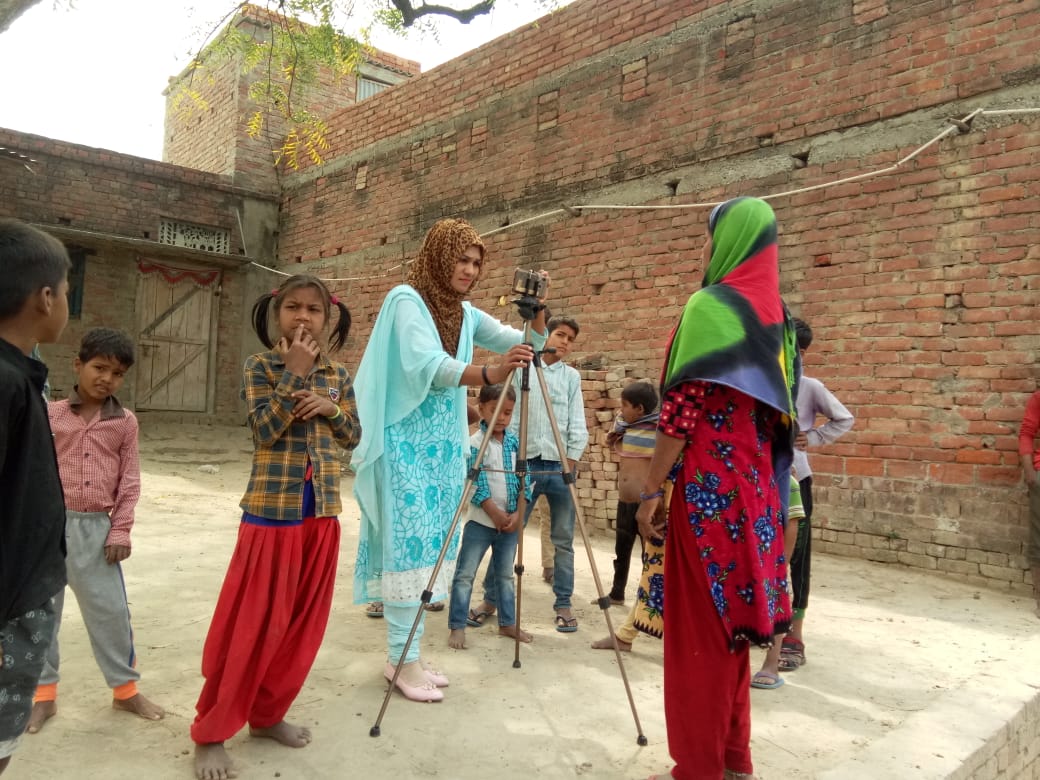
Shabnam Begum working on a impact story in Varanasi, Uttar Pradesh
“I joined the Impact Committee to learn how to increase my own impact videos. There are around 10-12 people in the committee and each of them bring their own experiences. Since November 2019, I’ve been able to shoot 10 impact videos with help of the committee. In the last one year, 565 impact videos were shot in total by all the CCs. We first chose CCs who were not active at all in terms of shooting Impact videos. We shared our own experience. Helped them gain access to concerned government personnel to show them the videos,” she said.
“As a woman, I feel heard and empowered. 50% of the Council is women. Even in the Impact Committee, it is ensured that our views are heard. We have the freedom to express our views and it is given priority.”
- As part of the Impact Committee, Uttar Pradesh’s Anil Kumar Saroj helps CCs get impact on their video by encouraging them and providing lessons to shoot and edit Impact videos.
“We planned there should be more impact videos since we noticed that 130 members had created an impact but had not shot videos on it. We divided CCs among us whom we can mentor. For month of January, we divided 45 members among 7 council members. We will add more members in the Impact team eventually,” he said.
“The idea of forming a Council is good because now CCs are able to put forward their problems before the management. We feel very powerful because we were able to solve problems of CCs and activate lot of them”.
- Shikha Kumari Pahadin from Jharkhand helps CCs remain active in shooting videos and creating impact. She is especially engaged in strengthening women’s participation in the organization.
“The problem is that many women are not very active on social media. They fall behind because of education. There should be special training for women who are not that educated and cannot use internet effectively”.

Shikha Kumari Pahadin from Jharkhand working with the community.
“To help them, we sometimes ask them to take screenshots of problems wherever possible. We ask them who all are there in the family, see if children can help in assisting their mothers to tackle technological problems, etc. We also help understand the value of social media”.
- Accountable Leadership – When people feel that their voices will be heard, it gives them more confidence to use it to leadership. This criticism is valuable, because the organization or movement can course correct and learn from mistakes. But learning from mistakes is only possible if an organization views itself as accountable to its primary constituents. The Council is moving the organization in that direction.
- Madhuri Chauhan, from Uttar Pradesh, views her membership in the Council as an opportunity to run VV. She is also part of the Communications Committee which acts as a bridge across the network.
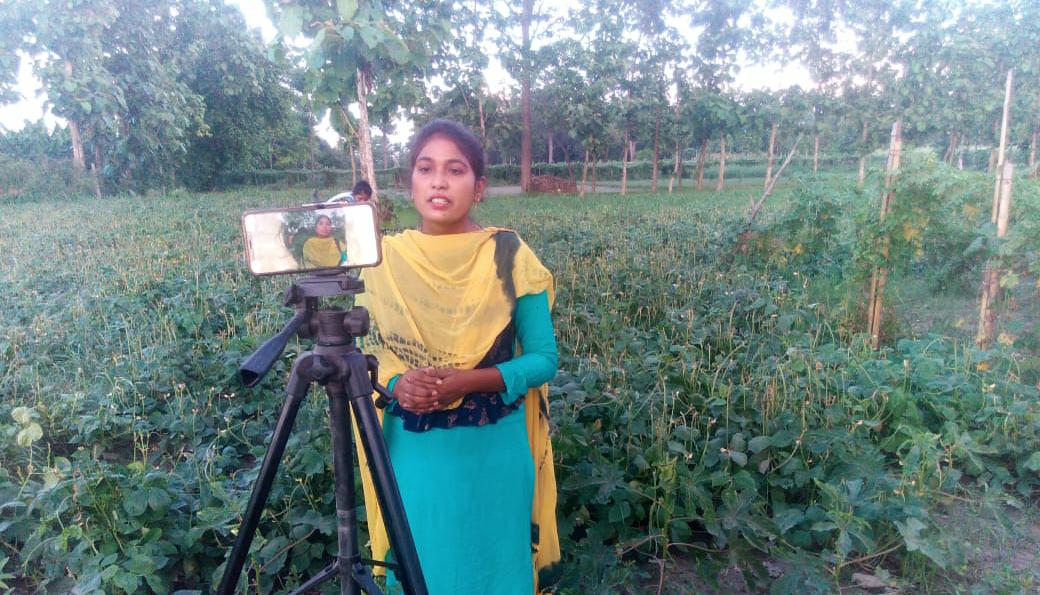
Madhuri Chauhan from Kushinagar, Uttar Pradesh giving a P2C.
“If a CC is not active in a WhatsApp group, for instance, we help them out. We act as a bridge between VV Goa and the CCs. I am able to benefit financially too from the Committee, by providing training to other CCs for which the organization pays me. We help them communicate their problems and issues.We also question the leadership when required, we have that freedom,” said Madhuri.
- Mamta Patra from Odisha feels that transparency has increased in the organization since the Council started.
“In the decision-making process, how can CCs have their say? Earlier decisions were taken by the office and followed by CCs but now out opinions and ideas are taken in account. For instance, recently we were asked about how the equipment policy should be, that says when Correspondents can apply to get new cameras and microphones, etc. We are giving our views on that,” she said.
“Any policy being proposed by the management is vetted by the Council and if there are any issues, we point out. If there are questions relating to payment, or training, CCs are able to ask questions to the office. In many cases, CCs gathered courage to ask questions and office has provided the answers. There is much more transparency after formation of the council. Information reaches everyone with clarity”.
A recurring emotion that the CCs feel in being part of the Committees and the Council, is the sense of belonging. “We feel like a family,” is a sentence heard several times by the interviewer during chats with the CCs. The freedom to speak their mind, without being rebuked or held up, is bolstering that sense of belonging, which in turn creates a strong, resilient organization. Some CCs expressed that well:
“There is no mental pressure because of which we are able to work efficiently. We feel like a family here,” Rajesh said.
“We have never felt the difference between owners and employees. There is a sense of equity. It feels like family. I always felt in order to be respected or to get problems solved, I would have to be in a big post, but after joining Video Volunteers, I don’t feel that anymore. I can create impact by telling stories that not only affects me, but also people of my community,” Shabnam said.
“I’ve worked for atleast 5 organizations as a full-time employee. But at these organizations,I never felt I can be part of the policy level. What I like about VV is that everyone is treaty equally. We can call even the founders by their first names. We can vent out our anger in front of founder members,” Harihar said.
“Our organization takes our views on everything. Care is taken at the lowest level. We are treated like family. People who knew nothing about technology, learnt to take videos, edit, identify issues. We cover issues that impacts us directly, even those that mainstream media has not been able to reach. Even during lockdown, we were able to work because we lived there. VV has the largest network of women, which is very important. It is creating empowerment and equality,” said Rohini.
More from the same author
New Farm Law: The People Whose Voice Matters The Most Tell Us What It Means
Government Officials! Check WhatsApp, Your People Have Problems to Share
Discover the many benefits of being part of the swinging community
Discover the many benefits of being part of the swinging community If you are looking for a far more satisfying and exciting relationship compared to old-fashioned one, the swinging community will be the perfect spot available. right here, you are able to explore your sex along with other like-minded individuals...
Winaura Casino Las mejores casinos con manga larga Mastercard referente a España sobre 2024
Content Potenciar la tarjeta 🔐 ¿Es fiable jugar referente a casinos con manga larga Mastercard acerca de De cualquier parte del mundo? Betway Casino – ¡Recibe incluso 1.000€ referente a bonos de recibimiento! El asignación suena cómodo desplazándolo hacia el pelo con total seguridad, pues modo toda una demostración sobre...
